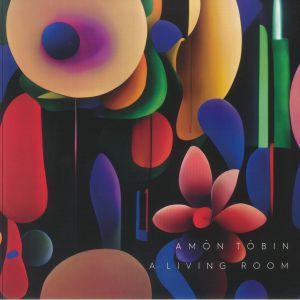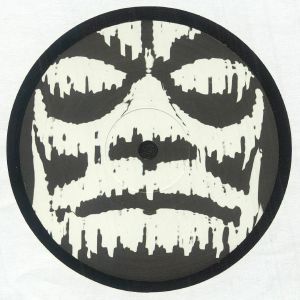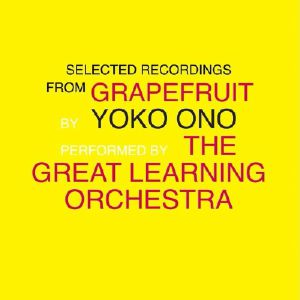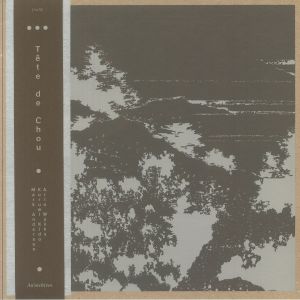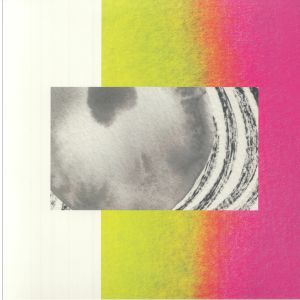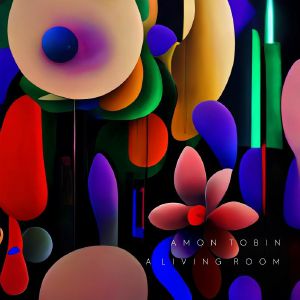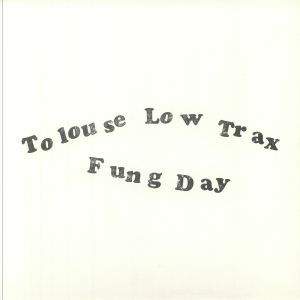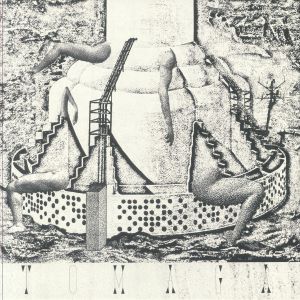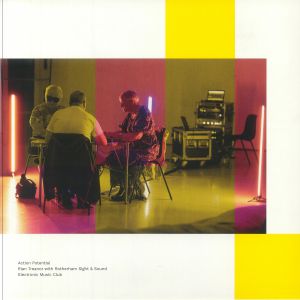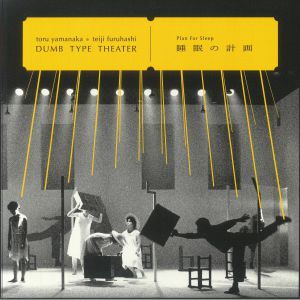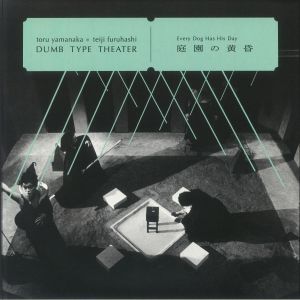Filter
Stock
Type
Artist
Label
Featured
Release Title
Price
Back catalogue: Experimental/Electronic
Juno's full catalogue of Experimental/Electronic
Singles
A Living Room (Music From Meow Wolf's Omega Mart) (limited 1-sided etched 12" + MP3 download code)
Cat: NO 9. Rel: 05 Nov 24
Review: Commissioned by Meow Wolf for their Omega Mart immersive art experience in Las Vegas, Amon Tobin delivers the kind of horizon-expanding epic you would hope for from one of the world's most respected living electronic music visionaries. Running at 20 minutes, give or take 40 seconds, this collection of movements worthy of an odyssey may have been designed for a specific context, but they don't have to be trapped there forever. While nothing will compare to diving headfirst into Meow Wolf's critically acclaimed installation piece, a kind of sci-fi takedown of advanced capitalism and blind consumerism in a morally bankrupt world, separating sounds from space still makes a big impact. Noises from the future, soundscapes from the depths of a truly astounding mind, this is nothing if not captivating.
… Read more in stock $43.85
Translations Remixes (12")
Cat: 12 TOT 52. Rel: 28 Mar 25
Review: This package of remixes of tunes from Translations is a real gem for lovers of Future Sound of London. plenty of familiar samples and textures are worked into the five Yage remixes as are cosmic overtones, sitars, drones, backward guitars and more. 'The Big Blue' is a woozy intergalactic sound on slow-mo beats, 'Requiem' is a worldly dub, 'The Lovers' has psyched-out lead riffs that bring prog energy and 'The Great Marmalade Mama In The Sky' has drunken tabla drums and mesmeric strings for a perfect retro-future comedown. 'Wooden Ship' is a spine-tingling sound with choral vocals bringing the celestial charm.
… Read more in stock $21.93
Alben
Selected Recordings From Grapefruit (gatefold 180 gram vinyl 2xLP + booklet + MP3 download code)
Cat: KR 100. Rel: 20 Mar 25
Review: For the first time on vinyl, through Karl Records, comes a limited edition and furtive Yoko Ono retrospective, in conjunction with the over-100-strong, Sweden-headquartered ensemble and community network The Great Learning Orchestra. These unlikely recordings were made at the time of the musician and performance artist Ono's 1964 multimedia collection Grapefruit, a cornerstone of what would later become known as "conceptual art". Grapefruit itself is a large artist's book, with a large vellum spine and browned parchment paper; it contains a series of "event scores" that outline, rather than permit the performances of, many different performance art pieces. The effect is apocryphal and ominous, as though the real performance of these instructive works may have accursed or deleterious effects. "Like a musical score, Event Scores can be realized by artists other than the original creator and are open to variation and interpretation"; and yet, Ono's book is a one of one, having never been reproduced or thus made collectable. Pre-dating John Cage by about a decade, the "event scores" described therein have now been performed by The Great Learning Orchestra, where hardly any of the performances / pieces have ever been captured sonically or laid to disc. This record changes all that, realising Ono's bewildering text instructions as tremulous suites, made up of clattering material hits and harrowing string instrumental assaults.
… Read more in stock $27.20
Tete De Chou (LP + insert + postcard in screen-printed sleeve with obi-strip limited to 300 copies)
Cat: AN 50. Rel: 17 Apr 25
In Which The Lines Are Drawn/The Larder Is Emptied/The Air Resounds To Akina Glass/While Two Of The Pipes Remain Silent (17:45)
Review: An'archives introduce the debut from Tete de Chou, the quietly adventurous trio of Mark Anderson (Greymouth, Suishou No Fune), Kurumi Kido, and Arlo Wynks. Emerging organically from informal sessions and shared yakitori nights, their music developed in intimate settings; home shows in tatami rooms, improvised studio jams, long-distance collaborations. Sessions between Japan and New Zealand carried over the album's dialectic of place and movement, described by Anderson as "almost a travel diary." Dulcimer, ichigenkin, glockenspiel, reeds, and homemade electronics interlace like a five-ply plait, causing an unfixed yet deeply affecting effect.
… Read more in stock $42.17
Review: The second album from Stefano Ghittoni and Bruno Dorella following 2019's Estatico. The duo again explores a rich soundscape blending experimental techniques with elements from both popular and underground music. Beginning with ethereal electroacoustic tones, the album evolves with delicate rhythms, arpeggiations and broken beats that cook up a moody, introspective atmosphere. Textural depth comes from the well worked samples, tape manipulations, field recordings and other unconventional sounds that are all seamlessly interwoven with traditional instruments. Drawing from electronic experimentation, psychedelic minimalism and shoegaze, this is a complex, immersive beauty.
… Read morein stock $29.96
A Living Roomart (1-sided etched vinyl LP + MP3 download code)
Cat: NOM 009. Rel: 13 Mar 25
Review: Shopping-as-hallucination was the idea behind Omega Mart, an immersive exhibition created by Meow Wolf in the capital of capitalistic pomp and OTT living, Las Vegas. A comment and scathing critique of a world that has convinced us of autonomy and individual agency but in feels more militant in its demand for consumption than the 1980s and 1990s ever were. Which is saying A LOT. One of the true auteurs of electronic music, Amon Tobin, was drafted for the score. A Living Room is an excerpt from that vast, blissful yet dystopian soundtrack. Calling on influences such as Jean Michel-Jarre, Vangelis and Brian Eno, this is an homage to synthetics in every possible way - its very beautiful and captivating existence reliant on the kind of inhuman instruments that are part and parcel of a society that no longer understands what is and isn't natural.
… Read more in stock $28.31
Review: Highly regarded as a former resident at Salon Des Amateurs in Dusseldorf, Tolouse Low Trax (Detlef Weinrich) has developed one of the most distinctive sounds in leftfield club music over the past 15 years. His new album Fung Day is his first with entirely new material since 2022's Leave Me Alone on Bureau B. Written and recorded over two years, the album slowly evolved, mixed and mastered in Paris, his new home. Known for his hypnotic grooves, Fung Day solidifies his reputation for crafting deeply unusual, mesmerizing electronic music.
… Read moreGespielt von: Richard Zepezauer (RZ-1)
in stock $31.64
Futura Grotesk (10th Anniversary Edition) (limited LP)
Cat: HITD 023. Rel: 08 Nov 24
Review: Founded in 2013 by Valentina Magaletti and Tom Relleen, Tomaga was a creative experiment that pushed beyond conventional musical boundaries. Their sound, an intriguing fusion of industrial, jazz, psychedelia and minimalism, is characterised by its multi-instrumental approach. Rather than opting for complex abstractions, the duo's minimalist compositions evoke darkly psychedelic and surreal imagery, capturing the essence of unsettled dreams and subconscious thoughts. Futura Grotesk elevates their exploration further, yielding compositions that are hauntingly evocative and richly layered. This reissue celebrates a decade of innovation and artistic expression.
… Read moreGespielt von: Juno Recommends Broken Beat Nu Jazz
in stock $28.59
Action Potential (LP)
Cat: EMC 01. Rel: 04 Nov 24
Review: .Rian Treanor emerged from the town of Rotherham, South Yorkshire, seemingly in a blanket of otherworldly noises, flashing consoles and staunchly futurist musical ideas. The world didn't really know what had hit it, and in many ways a decade later it's still unprepared for what he brings to the space station. A true representative of his region's era and world-defining electronic music legacy, Action Potential speaks to this and his refusal to recreate rather than push forward. It also compiles the results of his workshops with an organisation that offers creative practice for adults with visual impairment. A simple concept - allow pension-age participants to get thoroughly stuck in with all manner of kit and explore the possibilities of deconstructed avant garde club music. It's hard to imagine how the results could be any more fascinating and commanding.
… Read more in stock $24.15
Plan For Sleep (remastered) (LP + insert + MP3 download code)
Cat: CONATALA 006. Rel: 03 Dec 24
Review: Dumb Type Theater have been at the forefront of Japan's performance art landscape since 1984, although the years between then and now have seen some significant changes - culturally and in terms of the group. The death of Teiji Furuhashi, one of the central members, is just one example. A pivotal player in performances, he was often tasked with translating the instrumentation and arrangements of musician Toru Yamanaka into on-stage directions. Removed from that context, Yamanaka and Furuhashi's sounds still work incredibly well. There are aspects of Plan For Sleep that evoke the US avant garde of the time, perhaps reiterating the fact that the late-20th Century saw a closing of distances and a shared vision of where the future was heading among broad communities. Sound art, in the most musical and listenable sense.
… Read more in stock $29.41
Every Dog Has His Day (remastered) (LP + insert + MP3 download code)
Cat: CONATALA 007. Rel: 03 Dec 24
Review: It's not hard to see just how ahead of their time Dumb Type were. And still are. Founded in Kyoto, Japan, in 1984, the artist collective looked to interpret and portray the changes they could see beginning to happen around them in society - specifically the start of the (information) technology age. Presenting work that took a dark and cynical view of the increasing importance and prevalence of equipment and digital in the every day, they do this though art exhibitions, performances and publications. Audiovisual installations have always been particularly prominent, and Every Dog Has His Day - one of two Dumb Theater albums previously only available on tape, now issued on vinyl for the first time - makes it clear music was never an afterthought. Credited to Toru Yamanaka, who wrote much of their heard work, and the late Teiji Furuhashi, who translated that onto stage, it's an avant garde essential.
… Read more in stock $25.52

 USD
USD





